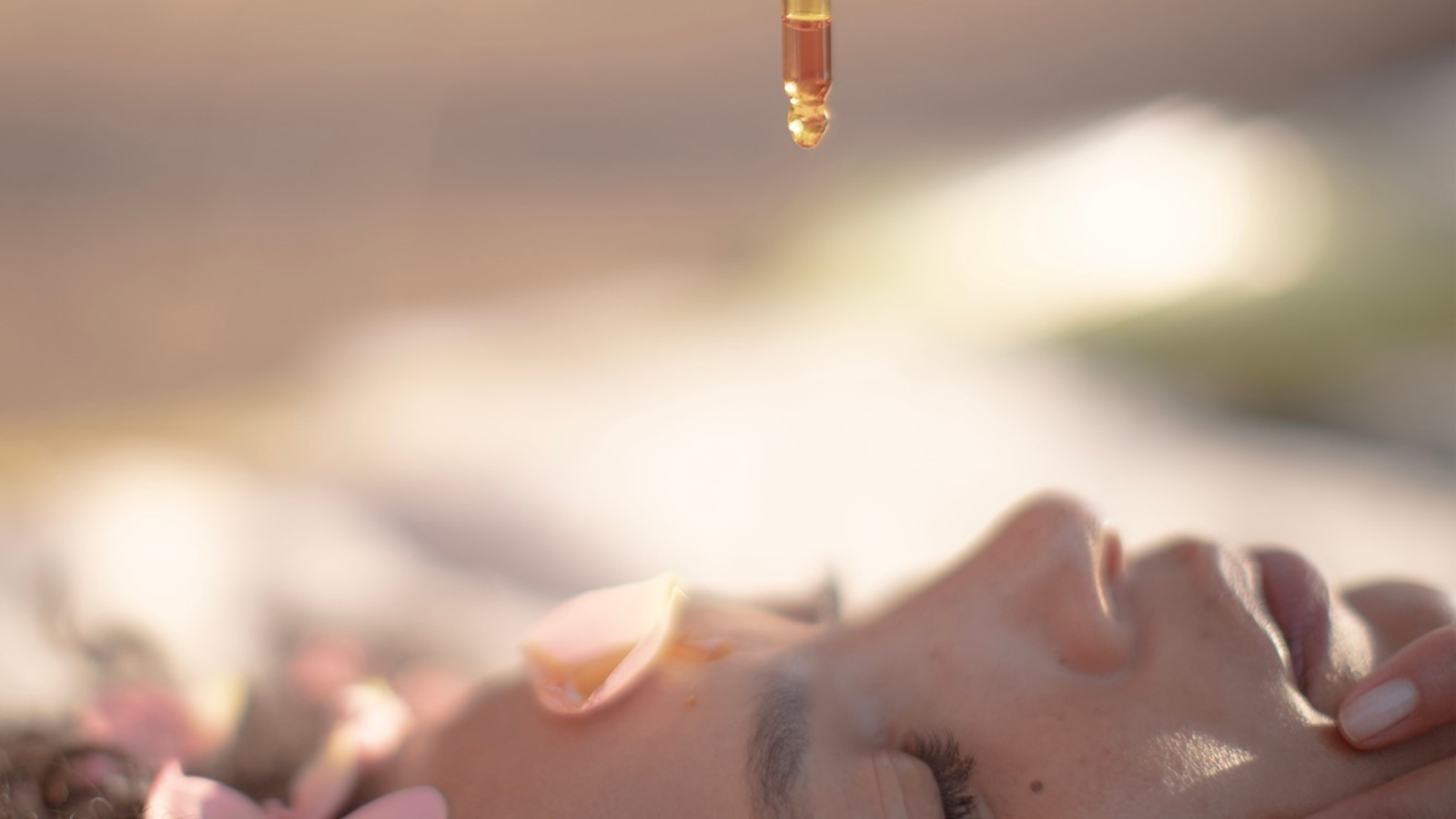
Why Is My Skin So Dry Even When I Moisturize?
Key Takeaways:
- Environmental and Lifestyle Factors: Indoor heating, weather conditions, and dietary habits significantly impact skin hydration and health.
- Professional Advice: Persistent dry skin symptoms may indicate underlying health issues, warranting a consultation with a dermatologist for targeted treatment.
- Choosing the Right Products: Understanding your skin type and selecting appropriate skincare products is crucial for effectively combating dry skin. To learn more, check out our blog on Revitalize And Hydrate: The Ultimate Guide To Body Oils For Dry Skin.
Dealing with dry skin can be aggravating, impacting both how you feel and how you look. Numerous people deal with skin that stays dry and scaly, despite consistently using hydrating products. This situation can cause puzzlement and unhappiness when attempts to moisturize the skin appear ineffective. In this discussion, we examine the reasons skin may continue to be dry even with regular moisturizing, looking into widespread misunderstandings and reasons. By grasping the subtleties of skin hydration, you can implement better skincare strategies to attain the smooth, radiant skin you seek.
Upgrade your approach to dry skin with Sacred Rituel Body Oil, specifically formulated to address hydration needs while promoting skin cell regeneration and elasticity. This luxurious oil, designed for sensitive skin, provides deep moisture without clogging pores, transforming dry, scaly skin into a smooth, radiant complexion. Incorporate it into your daily skincare routine for an immediate difference in skin texture and a lasting, soothing comfort.
Empower Your Health With Sacred RituelCare for Your Body and the Earth
|
Common Causes Of Persistent Dry Skin Despite Moisturization
Persistent dry skin, even with regular use of moisturizers, can be attributed to several factors that interfere with the skin's ability to retain moisture:
Using The Wrong Type Of Moisturizer
Not all moisturizers are created equal. Some contain ingredients that might not be compatible with your skin type or are too lightweight to provide adequate hydration for dry skin. It's crucial to choose a moisturizer that aligns with your skin's specific needs, focusing on products that are rich in hydrating ingredients such as hyaluronic acid, ceramides, and natural oils.
Over-Cleansing Or Using Harsh Cleansers
Frequent washing or using cleansers that strip the skin of its natural oils can exacerbate dryness. Opt for gentle, sulfate-free cleansers that clean without removing essential moisture.
Ignoring The Need For Exfoliation
Dead skin cells on the surface can prevent moisturizers from penetrating effectively. Regular, gentle exfoliation can help remove these barriers, allowing hydrating products to work more efficiently.
Environmental Stressors
Low humidity levels, cold weather, and indoor heating can sap the skin of moisture. Protecting your skin from these elements by using humidifiers, wearing protective clothing, and applying moisturizers can mitigate their drying effects.
Underlying Health Conditions
Certain medical conditions, such as eczema, psoriasis, or thyroid issues, can lead to dry skin. If your skin remains dry despite all efforts, it might be time to consult with a dermatologist to rule out any underlying health concerns.
The Importance Of Choosing The Right Skincare Products
Choosing the right skincare products goes beyond just treating dry skin—it's about making sure every part of your routine promotes skin health and moisture. If you prioritize clean, organic, ethically sourced, and sustainable items, knowing what to look for is crucial.
Ingredients Matter
Look for products containing natural moisturizing factors (NMFs) such as hyaluronic acid, glycerin, and natural oils like jojoba or argan oil. These ingredients mimic the skin’s natural moisturizing agents and can provide deeper, more lasting hydration.
Avoid Harmful Additives
Steer clear of products with alcohol, fragrances, and artificial colors, which can irritate and dry out the skin. Instead, opt for hypoallergenic and non-comedogenic products, especially if your skin is sensitive or prone to acne.
Understand Your Skin Type
Knowing whether you have dry, oily, combination, or sensitive skin can help you choose products tailored to your specific needs. This can prevent issues like over-moisturizing, which can lead to clogged pores and breakouts, or under-moisturizing, which leaves skin dry and flaky.
Enhance your skin's health by choosing the Sacred Trio, which includes the Sacred Serum, Rose Toner, and Body Oil. These products are specifically designed to cater to different skin types, ensuring that your skin receives the right balance of moisture without the risk of clogging pores or exacerbating dryness. The Sacred Trio provides a comprehensive approach to skincare, promoting a clear, hydrated, and healthy complexion through sustainable and organic ingredients.

Sustainability And Ethics
For those committed to environmental and ethical standards, look for brands that prioritize sustainable sourcing and packaging, cruelty-free testing, and organic certifications. This ensures that the products not only benefit your skin but also align with broader values of environmental stewardship and ethical responsibility.
Patch Testing
Before committing to a new product, perform a patch test by applying a small amount to your inner forearm and observing for any adverse reactions over 24 to 48 hours. This can prevent potential irritation or allergic reactions on your face.
Environmental Factors And Their Impact On Skin Hydration
Environmental factors can play a significant role in the hydration levels of your skin. Being aware of these factors and knowing how to combat their effects can help maintain your skin's moisture balance:
Climate And Weather
Extreme weather conditions, whether it's the cold and wind of winter or the heat and humidity of summer, can strip your skin of its natural oils. In winter, consider using richer, more emollient moisturizers and running a humidifier to add moisture to the air. In summer, opt for lighter moisturizers and increase your water intake to stay hydrated.
Indoor Heating And Cooling
Central heating and air conditioning significantly reduce indoor humidity levels, leading to dry skin. Using a humidifier can help maintain a healthier moisture level in your home or office.
Sun Exposure
Prolonged exposure to the sun can dehydrate your skin and damage its protective barrier. Always apply a broad-spectrum sunscreen with a high SPF to protect your skin from UV rays, even on cloudy days.
Pollution
Urban environments can expose your skin to pollutants that strip away moisture and damage the skin barrier. Incorporate antioxidants like vitamin C into your skincare routine to combat the effects of pollution and free radicals.
Water Quality
Hard water, high in minerals, can be harsh on your skin and lead to dryness. Using a water softener at home or cleansing with micellar water can help mitigate the effects of hard water on your skin.
Practical Tips To Enhance Moisturizing Effectiveness
To maximize the benefits of your moisturizing routine and combat dry skin effectively, consider implementing the following practical tips:
Layering Products
Apply skincare products from thinnest to thickest consistency. Start with clean skin, add serums or essences, and finish with a heavier moisturizer or oil to lock in moisture.
Timing Matters
Apply moisturizer immediately after bathing or washing your face to trap moisture in the skin. This can significantly enhance the hydration levels of your skin.

Hydration From Within
External moisturization is crucial, but so is internal hydration. Ensure you're drinking plenty of water throughout the day and consider incorporating hydrating foods into your diet, such as fruits and vegetables high in water content.
Humidify Your Environment
As mentioned earlier, maintaining a humid environment, especially during dry seasons, can help keep your skin hydrated. Consider using a humidifier in rooms where you spend the most time.
Regular Exfoliation
Remove dead skin cells by exfoliating regularly to enhance the absorption of moisturizing products. However, be careful not to over-exfoliate, as this can lead to irritation and increased dryness.
Customize Your Skincare Routine
Pay attention to how your skin feels and adjust your skincare routine accordingly. Your skin’s needs can change based on factors like weather, stress, and hormonal fluctuations.
Sun Protection
Protect your skin from drying effects of the sun by applying a broad-spectrum sunscreen daily. This helps prevent moisture loss and guards against premature aging.
When To Seek Professional Help: Recognizing Underlying Skin Conditions
While adopting a thorough skincare routine can significantly improve dry skin, there are times when persistent dryness may indicate an underlying skin condition. Recognizing the signs that warrant professional consultation can lead to more targeted treatments and relief:
Persistent Redness Or Irritation
If your skin remains red, itchy, or inflamed despite gentle skincare practices, this could be a sign of conditions such as eczema or dermatitis.
Skin That Feels Tight Or Painful
Skin that consistently feels tight, sore, or painful after moisturizing may be more than just dry. It could be indicative of skin barrier damage or other dermatological issues.
Excessive Flaking Or Peeling
While some flaking can be normal, excessive peeling or flaking, especially if accompanied by bleeding or oozing, may suggest a skin condition like psoriasis.
No Improvement With Over-The-Counter Products
If you've tried various moisturizers and skincare adjustments without any improvement, a dermatologist can provide prescriptions or treatments tailored to your specific skin needs.
Signs Of Infection
If you notice signs of infection, such as pus, severe pain, or areas of warmth, seek medical attention promptly, as these can be signs of bacterial, viral, or fungal infections.
Final Thoughts
Addressing dry skin goes beyond just applying moisturizer; it's about a holistic approach that combines understanding your unique skin needs, adopting a healthy lifestyle, and making informed skincare choices. This strategy emphasizes the importance of tailoring your skincare routine, considering environmental factors, and ensuring internal hydration. Ultimately, tackling dry skin effectively requires a balanced and informed approach, leading not only to healthier skin but also to overall well-being.
Adopt the Sacred Set + Travel Set for a comprehensive solution to dry skin, perfectly blending the practice of selecting skincare tailored to your needs with the convenience of mobility. This combo ensures that your commitment to a healthy lifestyle and informed skincare choices doesn't halt while you're on the move. It's the ideal choice for maintaining hydration and skin health, reflecting a balanced approach to skincare that caters to well-being inside and out.
Read Also:
- Unlocking Soothing Bliss: The Ultimate Guide To Body Oils For Eczema Relief
- Botanical Bliss: Embracing The Benefits Of Natural Body Oils For A Healthier Glow
- Nourishing Your Skin: Decoding The Difference Between Body Oil And Lotion
Frequently Asked Questions
What ingredients should I look for in a moisturizer for dry skin?
Look for ingredients like hyaluronic acid, ceramides, natural oils (jojoba, argan), and glycerin. These help retain moisture and strengthen the skin barrier.
Can the water I use to wash my face affect skin dryness?
Yes, hard water can strip moisture from your skin. Using a water softener or cleansing with micellar water can help mitigate the effects of hard water.
How often should I exfoliate my dry skin?
Gentle exfoliation 1-2 times a week can help remove dead skin cells and improve moisturizer absorption. Avoid over-exfoliating as it can lead to increased dryness.
Is it possible to over-moisturize my skin?
Yes, applying too much moisturizer or using very heavy creams can clog pores and lead to breakouts, especially if you have combination or acne-prone skin.
How does indoor heating affect my skin?
Central heating can reduce humidity levels and dry out your skin. Using a humidifier can help maintain a healthier moisture level indoors.
Why should I apply moisturizer immediately after washing?
Applying moisturizer on damp skin helps to trap moisture and improve skin hydration.
Can my diet affect my skin hydration?
Yes, staying hydrated and consuming foods high in water content like fruits and vegetables can help improve skin moisture.
What is the importance of sunscreen in combating dry skin?
Sunscreen protects the skin from UV damage, which can dry out and damage the skin barrier, leading to moisture loss.
Why might my skin still feel dry despite using a moisturizer regularly?
You might be using the wrong type of moisturizer for your skin, not addressing underlying health conditions, or not considering the impact of environmental factors.
When should I see a dermatologist for my dry skin?
If you experience persistent redness, irritation, tightness, excessive flaking, or no improvement with over-the-counter products, consult a dermatologist.
Sources:
- Kim, S., Ly, B. K., Ha, J. H., Carson, K. A., Hawkins, S., Kang, S., & Chien, A. L. (2020). A consistent skin care regimen leads to objective and subjective improvements in dry human skin: investigator-blinded randomized clinical trial. Journal of Dermatological Treatment, 1–22. https://doi.org/10.1080/09546634.2020.1751037
- Del Rosso, J. Q. (2013). The Role of Skin Care as an Integral Component in the Management of Acne Vulgaris: Part 1: The Importance of Cleanser and Moisturizer Ingredients, Design, and Product Selection. The Journal of Clinical and Aesthetic Dermatology, 6(12), 19–27. https://www.ncbi.nlm.nih.gov/pmc/articles/PMC3997205/
- Gade, A., Matin, T., & Rubenstein, R. (2022). Xeroderma. PubMed; StatPearls Publishing. https://www.ncbi.nlm.nih.gov/books/NBK565884/
- NIAMS. (2017, April 12). Psoriasis. National Institute of Arthritis and Musculoskeletal and Skin Diseases. https://www.niams.nih.gov/health-topics/psoriasis
- Milani, M., Hashtroody, B., Piacentini, M., & Celleno, L. (2019). Skin protective effects of an antipollution, antioxidant serum containing Deschampsia antartica extract, ferulic acid and vitamin C: a controlled single-blind, prospective trial in women living in urbanized, high air pollution area. Clinical, Cosmetic and Investigational Dermatology, Volume 12, 393–399. https://doi.org/10.2147/ccid.s204905







Comments (0)
There are no comments for this article. Be the first one to leave a message!